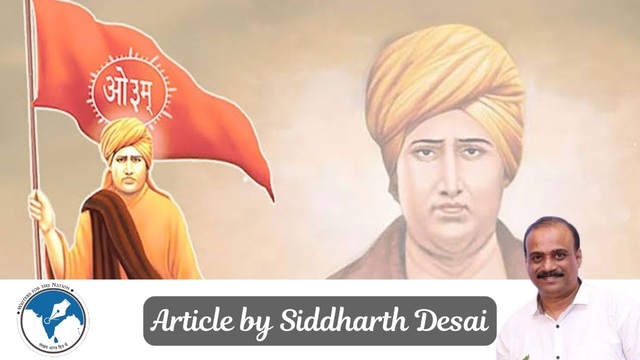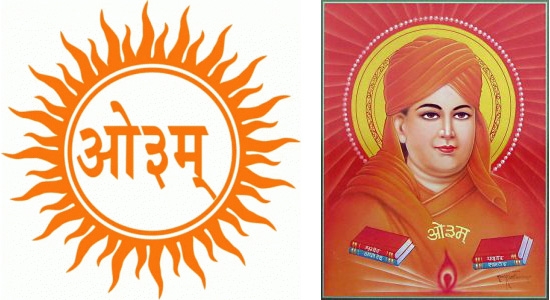हमारे महापुरुष (अंक 09) : Swami Dayanand Saraswati - The Visionary Reformer of 19th Century India

The name of the great 19th-century social reformer Swami Dayanand Saraswati is highly regarded and respected. At a time when superstition, blind faith, and social evils prevailed throughout India, this great patriot and fearless ascetic raised a strong voice against all of it.
He unfurled the "Pakhanda Khandini Pataka" flag to challenge the rampant fraudulent practices in the country. By breaking the caste system and supporting widow remarriage, he ignited a new societal awareness. Alongside establishing the importance of lawful marriage, he founded a society with reformist and progressive ideals, known as the Arya Samaj.
Swami Dayanand Saraswati was born on February 12, 1824, in the village of Tankara in the Kathiawar region of Gujarat. Born under the "Mool" nakshatra, his parents named him Mool Shankar. A true devotee of Lord Shiva, his belief was profoundly impacted by witnessing a rat eating the offerings made to the deity, prompting him to oppose idol worship.
His childhood was comfortable, and he lacked for nothing. From an early age, he studied the Vedas, scriptures, religious texts, and the Sanskrit language. His early education took place at home, where he learned Sanskrit grammar from his uncle, who cared for him deeply and helped him memorize some chapters of the Yajurveda.
A significant event in his life, the death of his beloved uncle, made him reflect on mortality and solidified his resolve to seek the true Shiva.
During his quest for knowledge, he met yogis and encountered Swami Purnanand Saraswati, a scholar from the South, who initiated him and renamed him Dayanand Saraswati. On April 10, 1875, he established the Arya Samaj to create a new society free from superstitions, evils, and ostentation.
Through the Arya Samaj, he advanced the cause of social reform, conducting widespread campaigns across the country to educate people about the significance of the Vedas. He initiated the Shuddhi Movement, encouraging those who had converted to return to Hinduism. In 1886, his follower Lala Hansraj established the Dayanand Anglo-Vedic College in Lahore, awakening new consciousness among the Hindu community and helping rid it of inherited evils.

Throughout his life, Swami Dayanand Saraswati opposed prevalent superstitions, conservatism, and inhumane behaviours. He believed in monotheism and opposed casteism and child marriage while promoting women's education and widow remarriage.
He also led several campaigns against the British, asserting that India belonged to Indians and preaching nationalism, continually inspiring people to sacrifice for their country. Swami Dayanand's most immortal work, "Satyarth Prakash," stands as a symbol of ideological revolution. Written in Hindi, it vigorously attacked superstitions, social evils, idol worship, and blind faith.
In "Satyarth Prakash," the author states that God, the soul, and nature are all beginningless and infinite. The qualities, actions, and nature of God, as well as the laws of creation, are also beginningless and infinite. Science shares this view that the laws of creation are immutable and universal, with God as their ruler. Thus, discussing miracles is merely an expression of blind faith.

The book is divided into two parts: the first part consists of ten chapters, and the second part contains four chapters, making a total of fourteen chapters. The first part discusses the various names of God, while subsequent chapters address topics such as education, marriage, ethics, and the significance of different religious beliefs.
Swami Dayanand Saraswati remains enshrined in the hearts of the people due to his significant contributions toward eliminating caste, faith, and class-based discrimination. He inspired many, including Mahatma Gandhi, to embrace the ideals of being "Arya," which means the best.
His teachings promoted the idea that education should not be a privilege for a few but an opportunity for everyone. He established a new social order based on justice and completeness in teacher appointments.
In 1885, to promote his ideas and education, the Anglo-Vedic DAV School was established in Lahore. Within two years, many high schools, colleges, and gurukuls were founded, and his ideas began to take shape. Swami Dayanand Saraswati's impact on Indian society was profound.
He worked tirelessly for educational and social reform, particularly in women's empowerment and the eradication of untouchability. His work remains highly relevant today, with the Arya Samaj he founded now having nearly 10,000 branches worldwide engaged in welfare activities.
He believed that pilgrimage sites are meant for good deeds rather than rituals. He opposed practices like purdah, child marriage, and Sati, emphasizing that they have no recognition in Vedic literature. His vision was to elevate the status of women in society, asserting that they should have equal rights, including the right to study the Vedas.
Swami Dayanand Saraswati was a fearless warrior for social and spiritual reform. His work took concrete steps to promote education, address social evils, and foster cultural pride. He believed that the revival and modernization of India were possible only through its ancient Vedic culture. Just as he was relevant in the 19th century, his significance will endure in every era.
Regardless of advancements in science and technology, the human concerns of dharma, artha, kama, and moksha will remain constant, enduring from ancient times into eternity.
In 1883, Swami Dayanand was poisoned, leading to his death on October 30, 1883, in Ajmer. Despite the challenges he faced, his legacy as a reformer and thinker continues to inspire generations, encouraging individuals to combat social evils and uphold the values of truth, knowledge, and justice.
_202410271348154469_H@@IGHT_326_W@@IDTH_380.jpeg)
